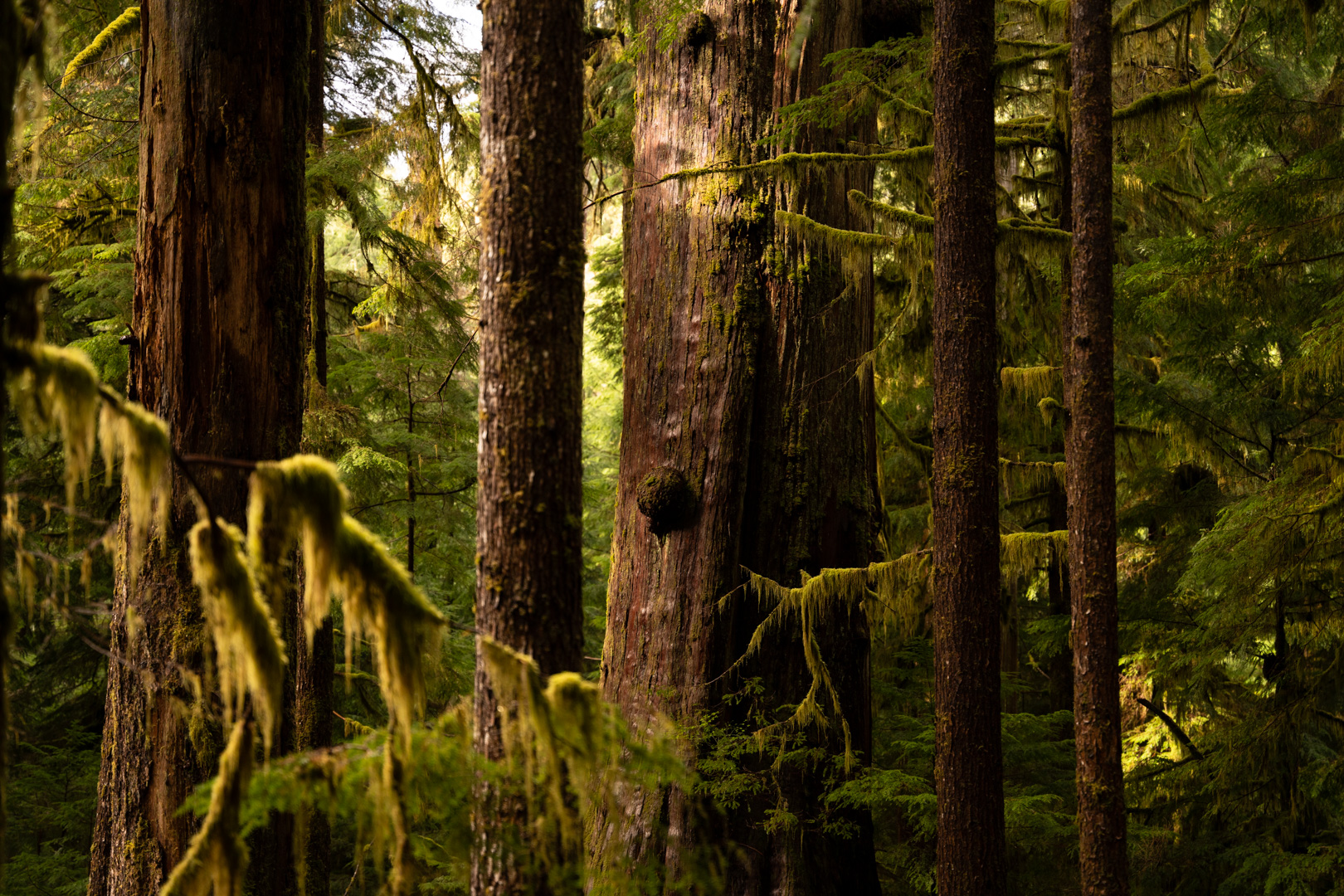Protecting old-growth forests in BC would generate billion-dollar benefits for society
Media Release
Protecting old-growth forests in BC would generate billion-dollar benefits for society
April 7, 2025
First Nations, tourism and environmental organization welcome independent report.

Photo by Mya Van Woudenberg
FOR IMMEDIATE RELEASE
UNCEDED xʷməθkʷəy̓əm (MUSQUEAM), Sḵwx̱wú7mesh (SQUAMISH) AND səlilwətaɬ (TSLEIL-WAUTUTH) TERRITORIES/VANCOUVER – A new independent study has found that protecting the most at-risk old-growth forests in just two large Timber Supply Areas (TSAs) in B.C. would result in $10.9 billion CAD worth of economic benefits for society over 100 years compared to business-as-usual logging.
The study, titled The Economic Value of Old-growth Forests in BC, was conducted by environmental consulting firm ESSA Technologies and assessed old growth management scenarios in the Prince George TSA (Carrier-Sekani territory) and Okanagan TSA (Sylix, Secwepemc and Nlaka’pamux territories). The findings also reveal that fully protecting old-growth forests in these two TSAs would generate $43.1 billion in net economic benefits over the next century.
Together, the two areas contain about 10 percent of B.C.’s total old-growth forests mapped in 2021. Carbon storage and sequestration is the largest factor, with additional benefits from tourism, recreation, and non-timber forest products. Many additional benefits of protecting old-growth forests like water quality and supply, flood mitigation, species habitat, cultural and educational values were not analyzed.
Leaders from First Nations, tourism and environmental organizations are welcoming the study:
Grand Chief Stewart Phillip, President Union of BC Indian Chiefs (UBCIC):
“This report is an important step in recognizing the true value of our lands and resources. It affirms what First Nations have always known—that sustainable stewardship and Indigenous knowledge are key to long-term prosperity. We look forward to continued collaboration to ensure our voices are heard and our title and rights are respected and upheld. ”
Katherine MacRae, President of the Wilderness Tourism Association:
“B.C.’s stunning landscapes and old-growth forests are the foundation of our thriving $22 billion tourism economy, creating good jobs in both rural and urban communities. As a non-tariffable export, tourism brings new revenue into the province, supporting a diverse and sustainable economy. As B.C. shifts away from traditional resource extraction, protecting these natural assets will ensure long-term prosperity for the communities that rely on the beauty and biodiversity of ‘Super, Natural BC.’’
Jens Wieting, Senior Policy and Science Advisor, Sierra Club BC:
“The report comes at a crucial moment for forests in B.C. Governments are focused on our economic response to tariffs, but we can’t afford to ignore the biodiversity and climate crisis. The new findings show that following through on provincial commitments to protect old growth and reform forest stewardship is the right decision for present and future generations. Business-as-usual would make all of us poorer, forever.”
-30-
Background
The B.C. government carries forward important conservation commitments from previous terms: the Old-Growth Strategic Review (OGSR) and short-term recommendation to defer logging across the 2.6 million hectares of the most at-risk old-growth forest, a plan to enact a Biodiversity and Ecosystem Health Law, and the Nature Agreement, which provides funding to support the goal of protecting 30 percent of B.C.’s lands by 2030. The new report further makes the case that these commitments need to become a reality.
B.C.’s forestry sector has lost thousands of jobs because of mechanization, unsustainable logging rates, climate change impacts, raw log exports, and corporations closing sawmills in B.C. to invest in the US. Forestry workers need government support to ensure long-term jobs in sustainable second-growth forest management that also restores ecological integrity in industrially degraded landscapes.
Media contacts
Grand Chief Stewart Phillip, President | Union of BC Indian Chiefs
Katherine MacRae, President | Wilderness Tourism Association
president@wilderness-tourism.bc.ca
Jens Wieting, Senior Policy and Science Advisor | Sierra Club BC
jens@sierraclub.bc.ca
